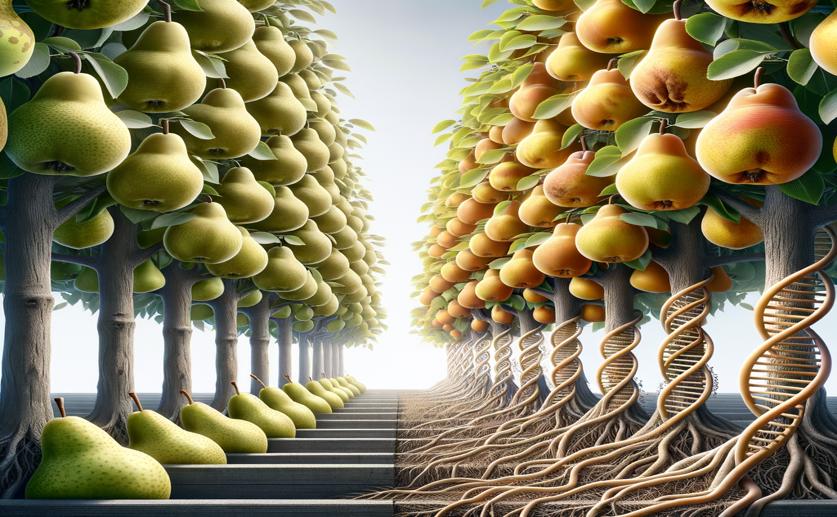
How DNA Changes Speed Up Pear Ripening Through History
Jenn Hoskins
8th April, 2024

Image Source: Natural Science News, 2024
Key Findings
- Researchers at Nanjing Agricultural University found that domesticated pear trees have more DNA methylation compared to wild types
- Increased methylation is linked to less activity of the DML1 gene, which is involved in removing methyl groups from DNA
- Methylation changes affect fruit ripening, with the CAMTA2 gene inhibiting early ripening when overexpressed
GeneticsPlant ScienceAgriculture
References
Main Study
1) Increased DNA methylation contributes to the early ripening of pear fruits during domestication and improvement.
Published 5th April, 2024
https://doi.org/10.1186/s13059-024-03220-y
Related Studies
2) Dynamics and function of DNA methylation in plants.
3) Plant DNA Methylation: An Epigenetic Mark in Development, Environmental Interactions, and Evolution.
4) Programming of DNA methylation patterns.



 28th March, 2024 | Jim Crocker
28th March, 2024 | Jim Crocker